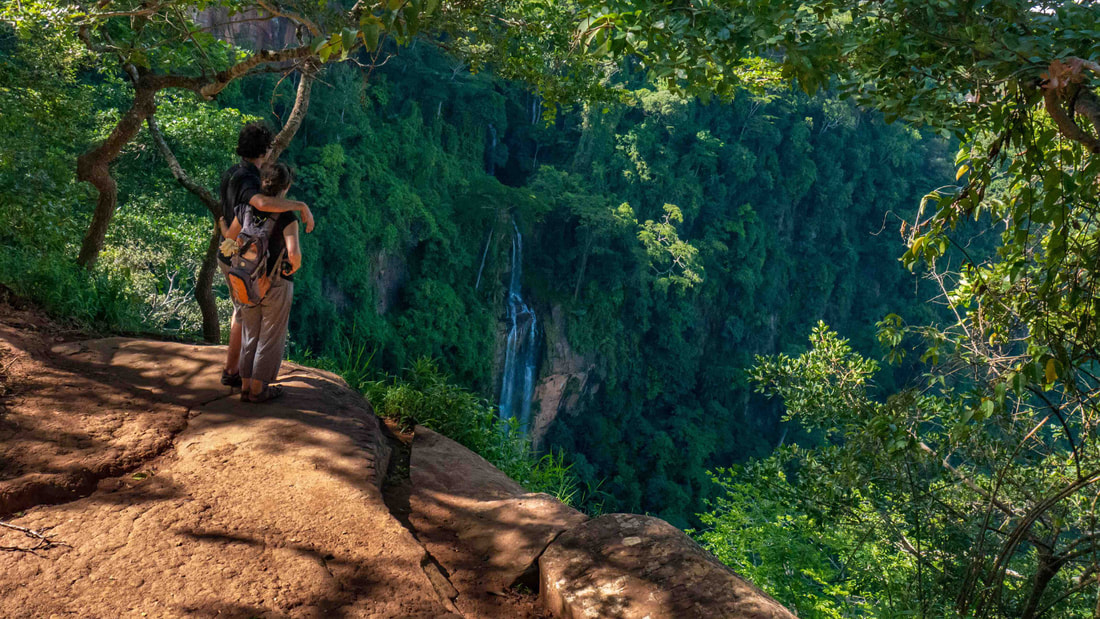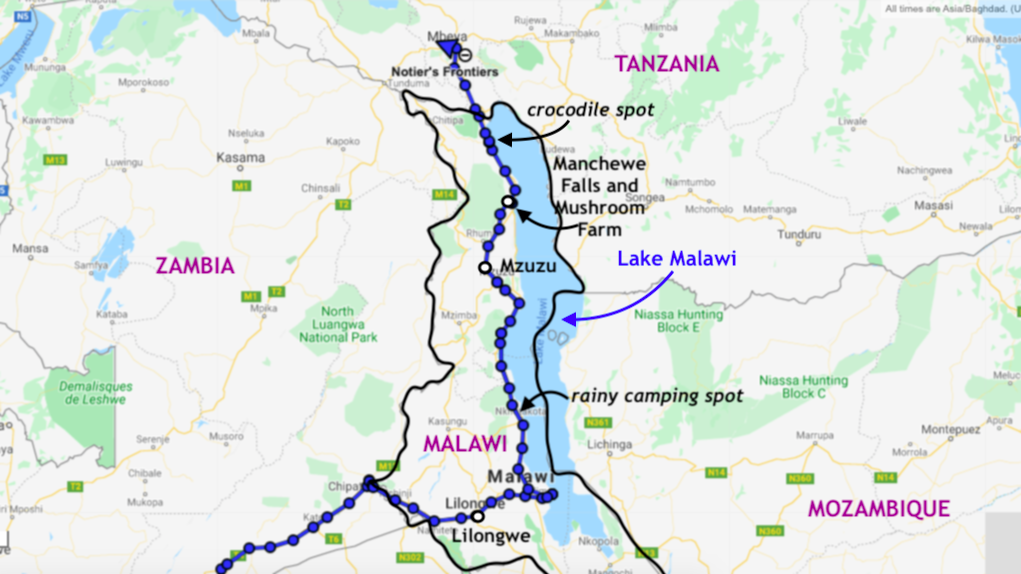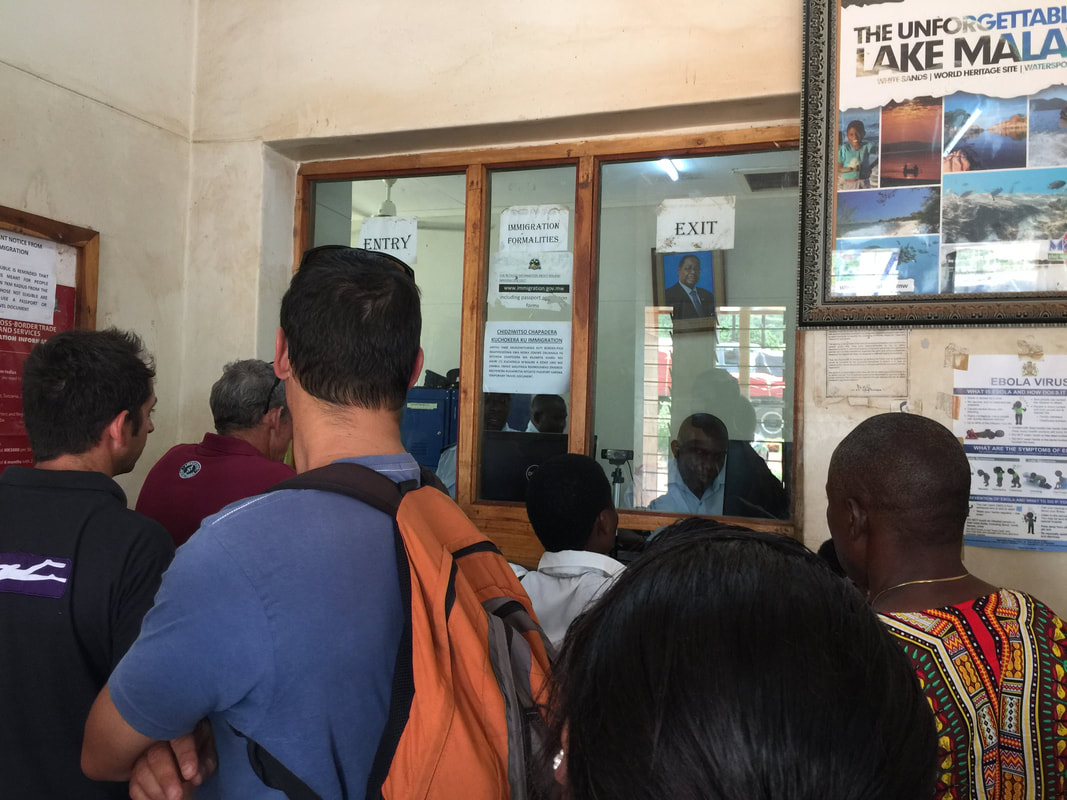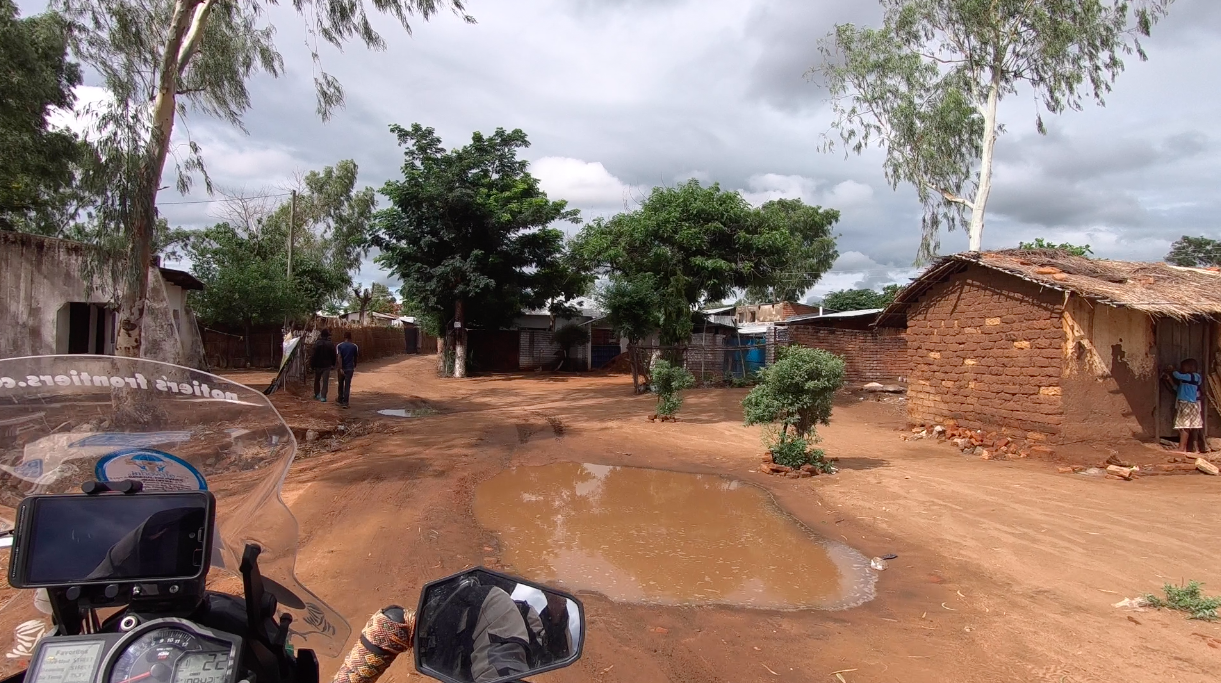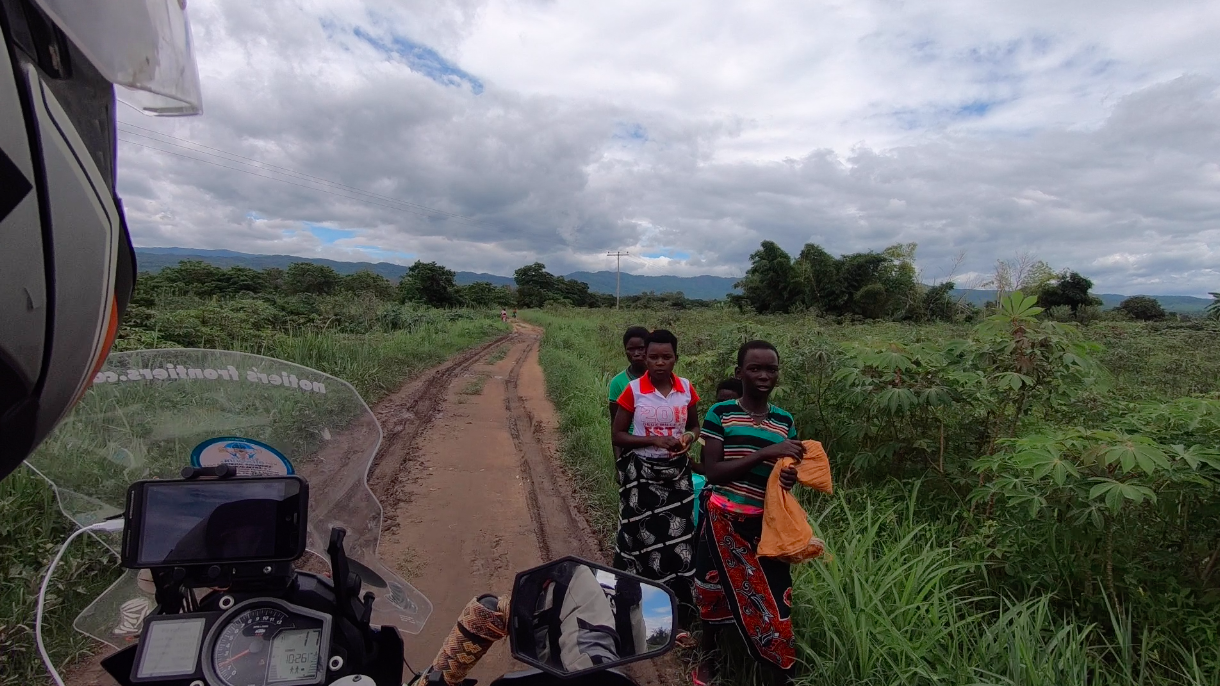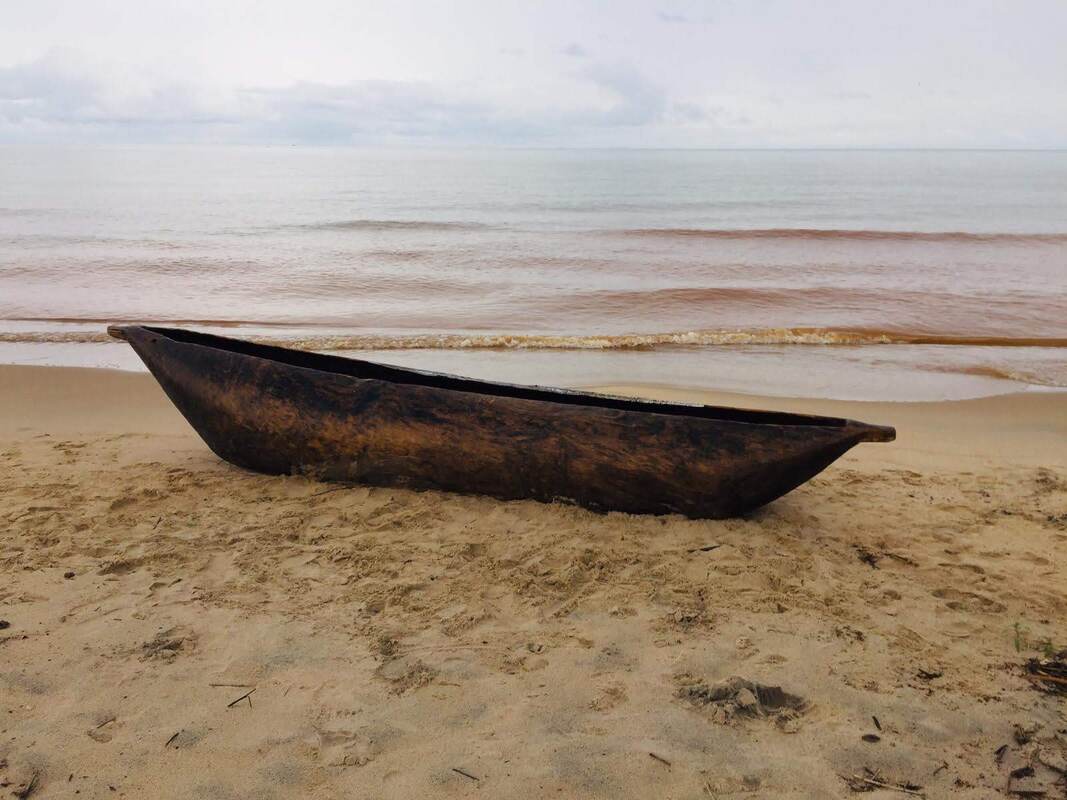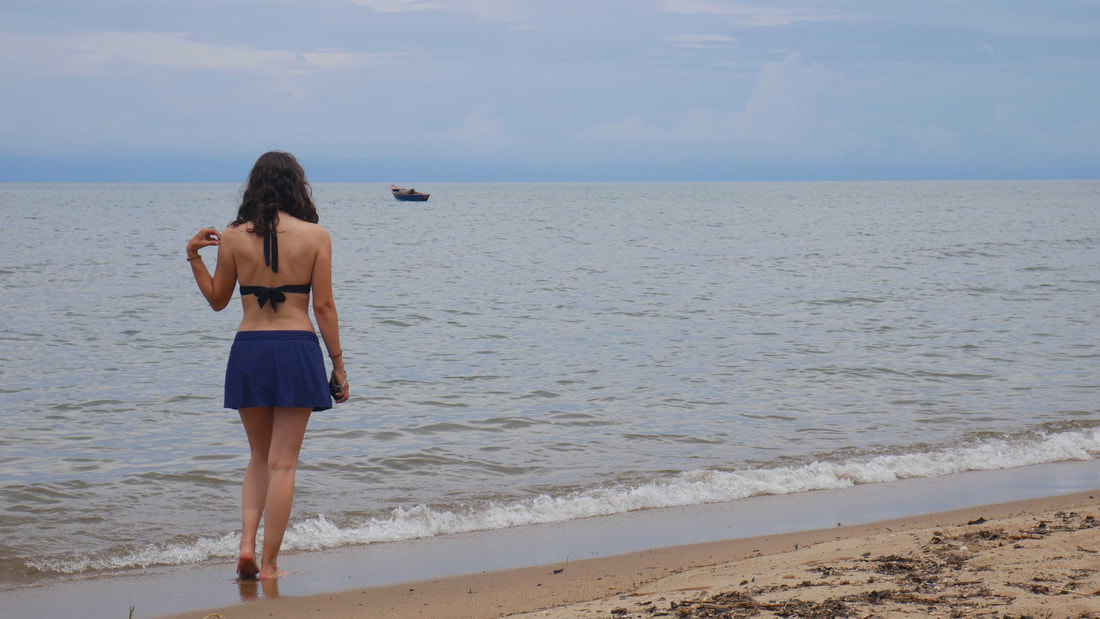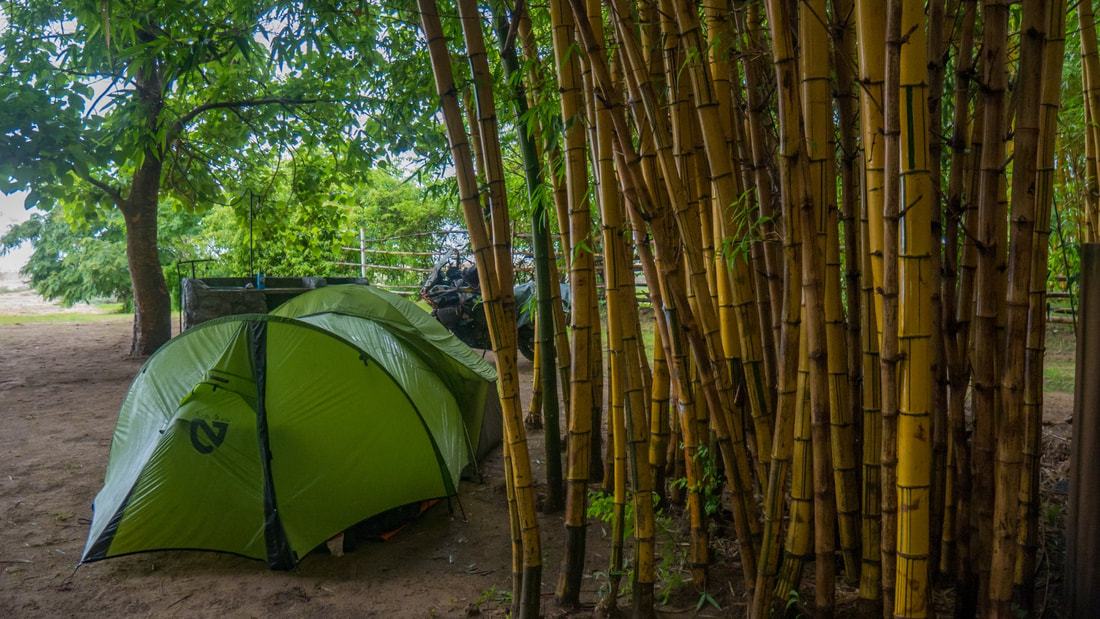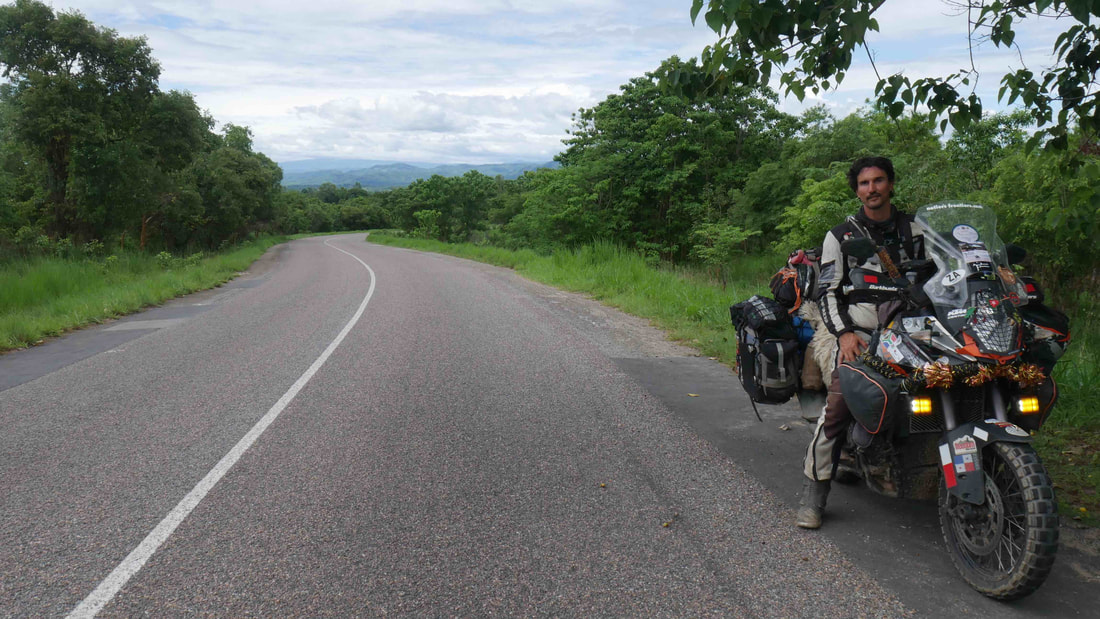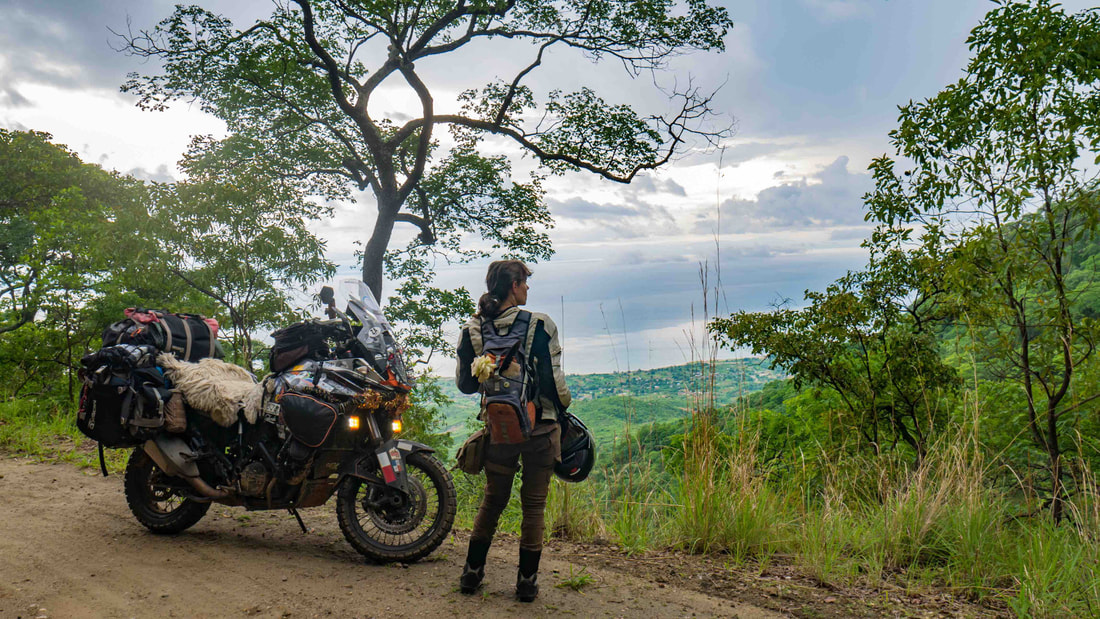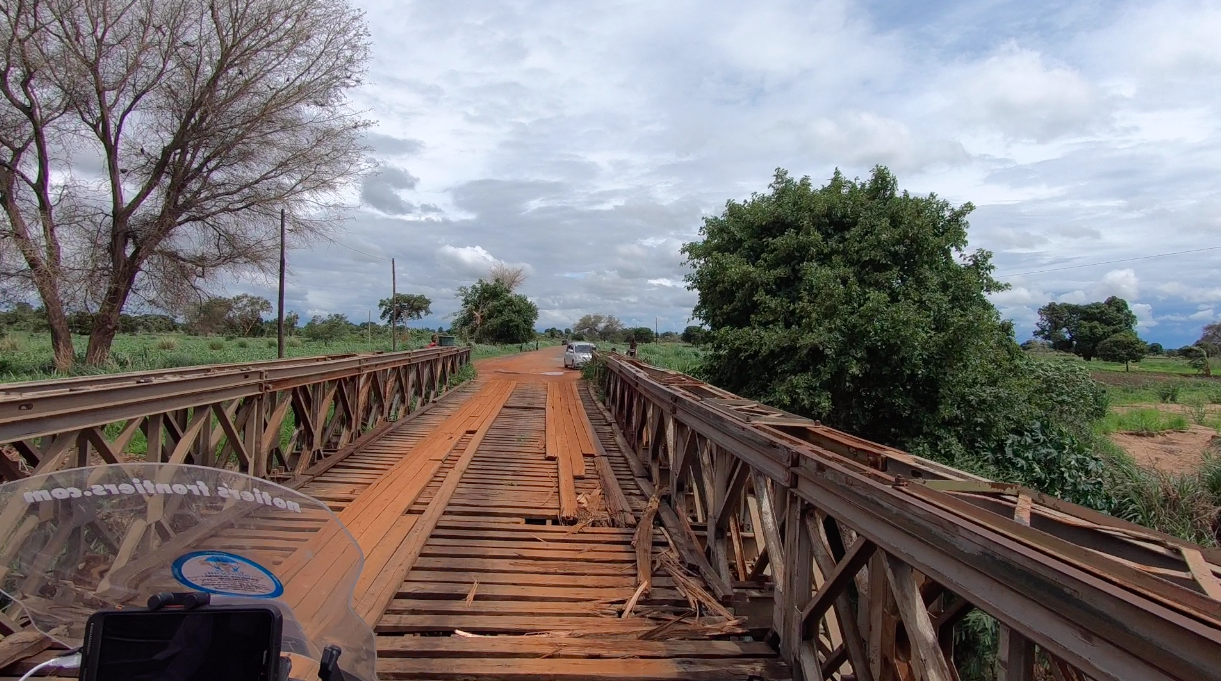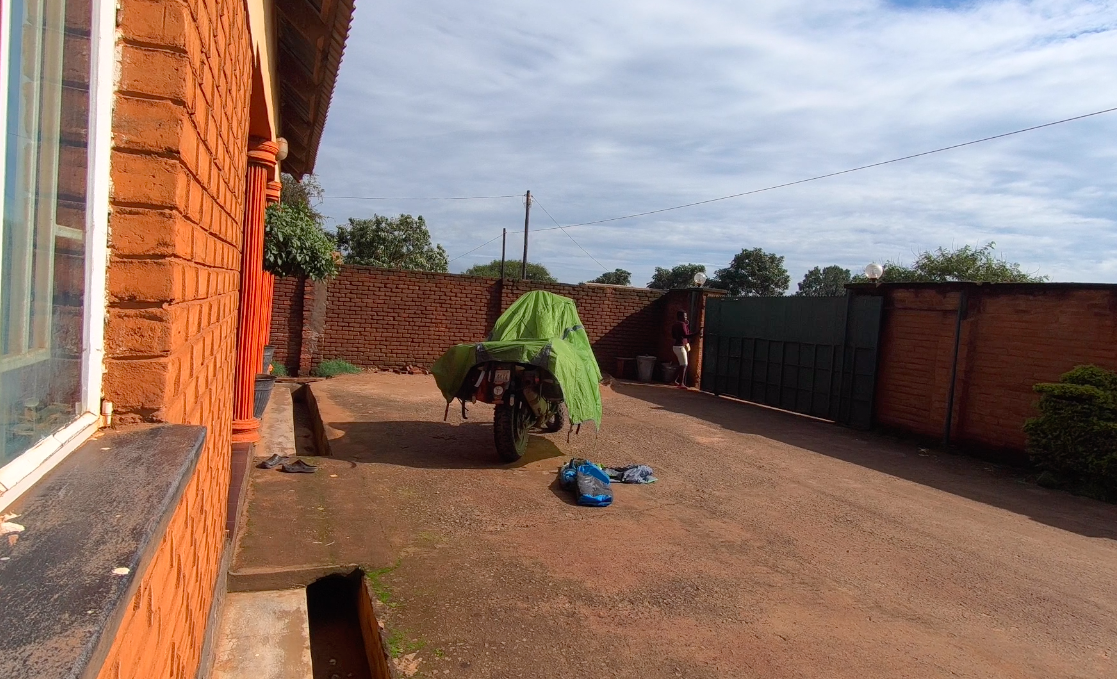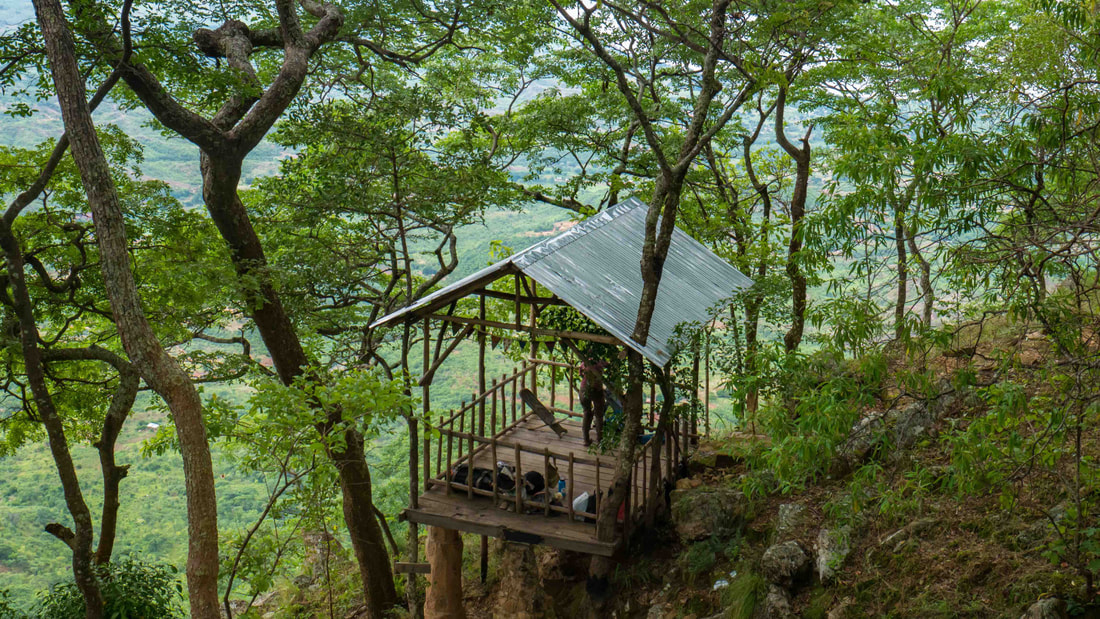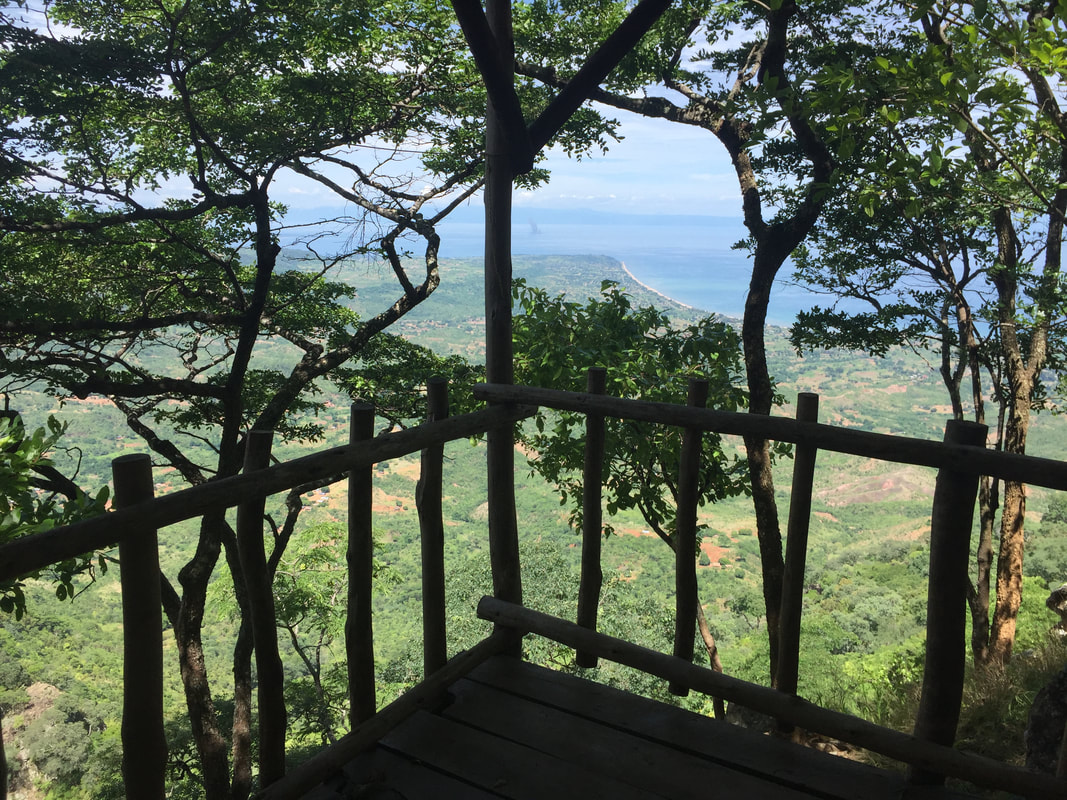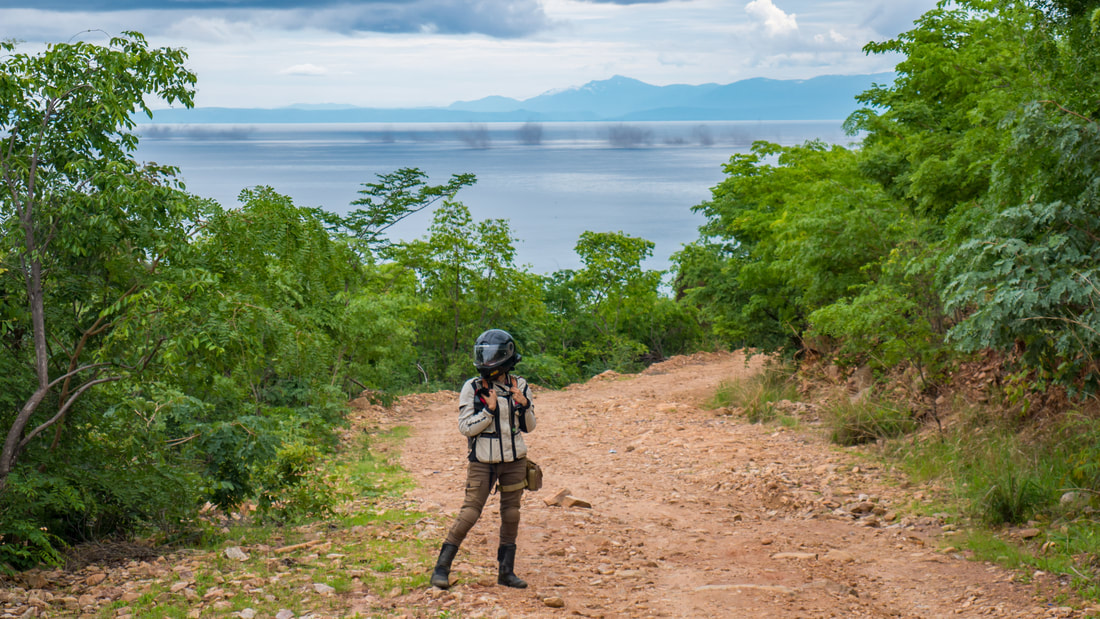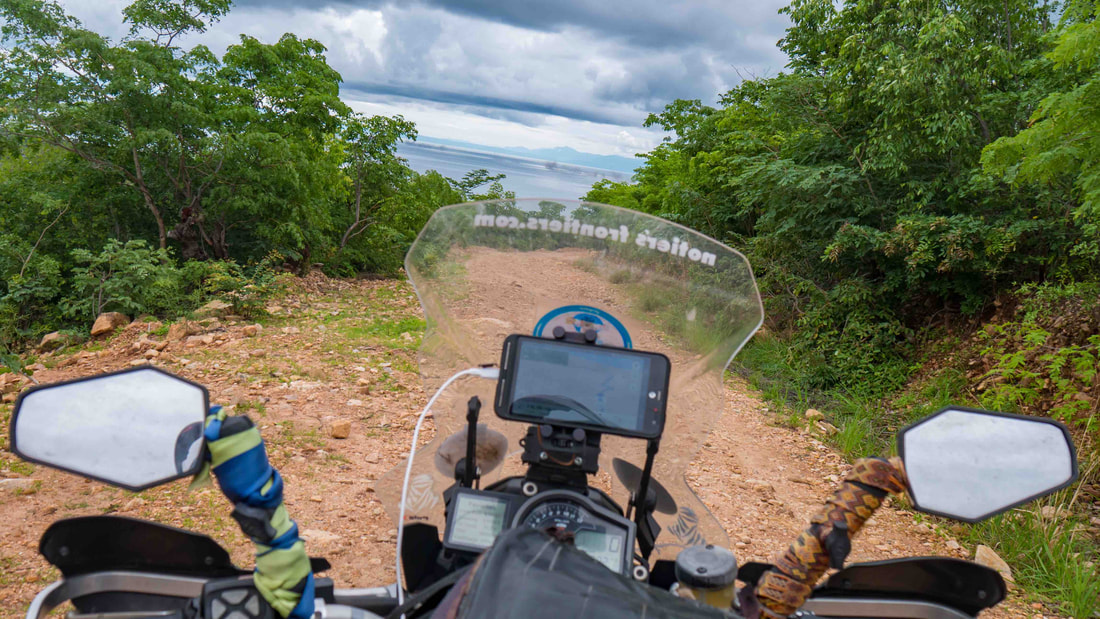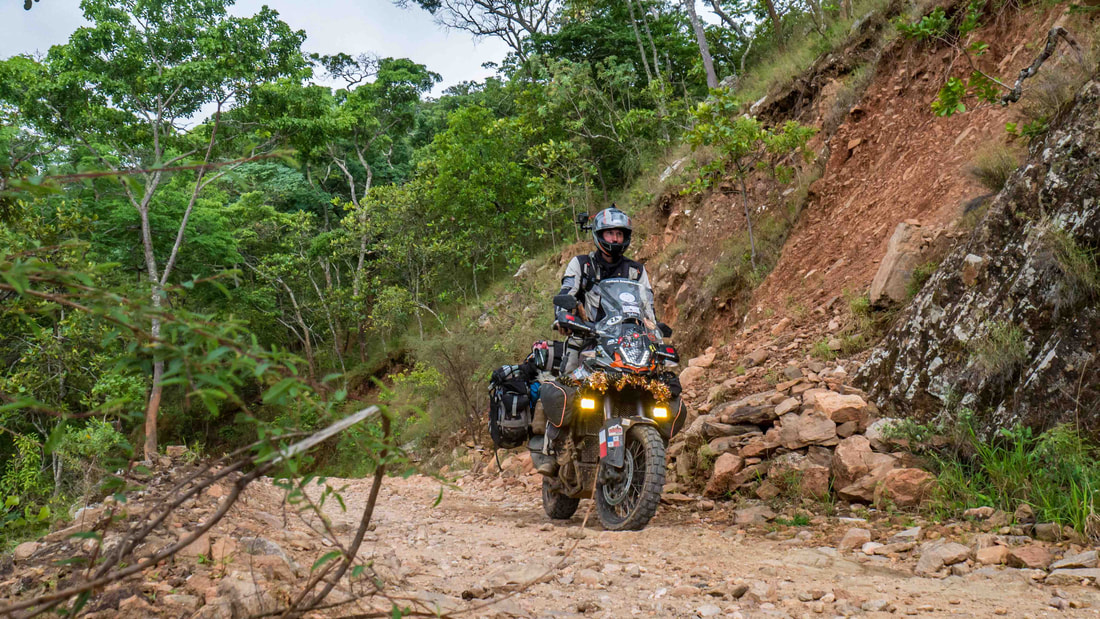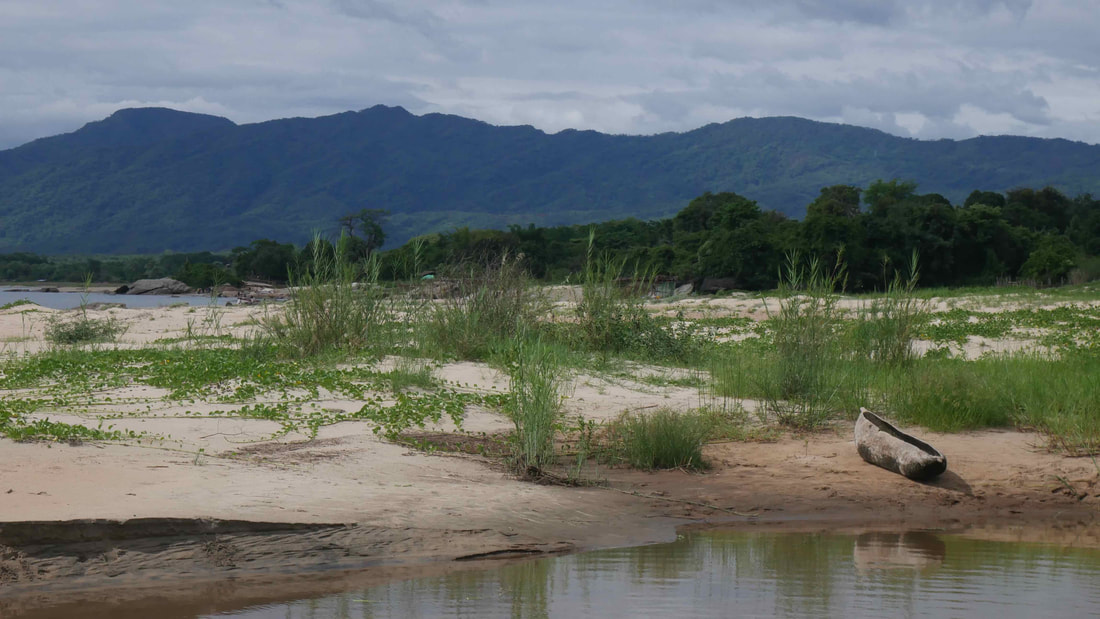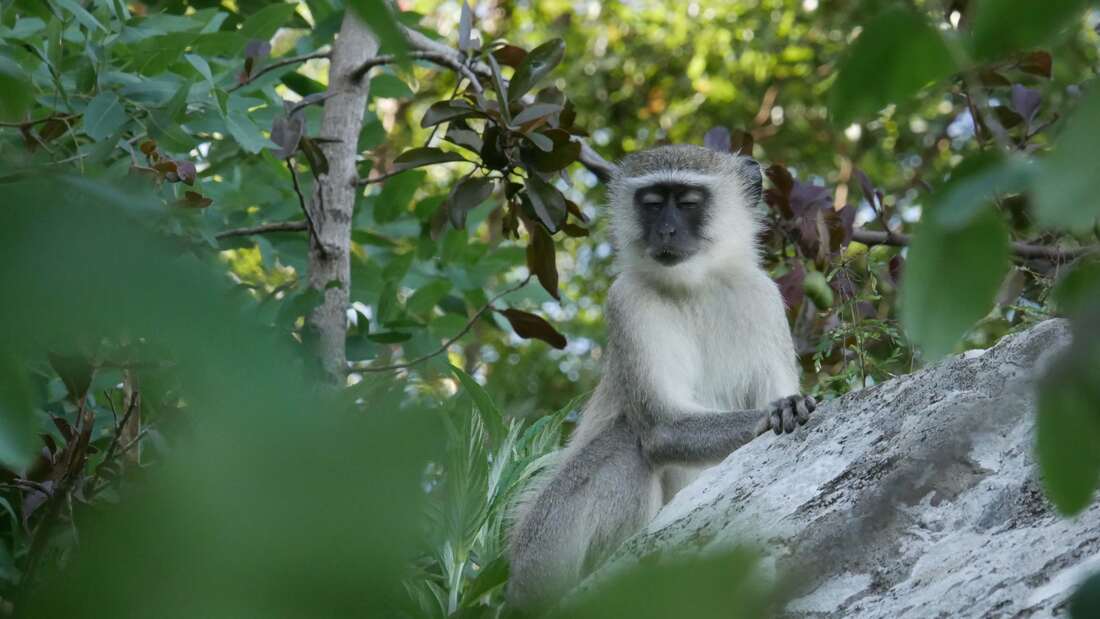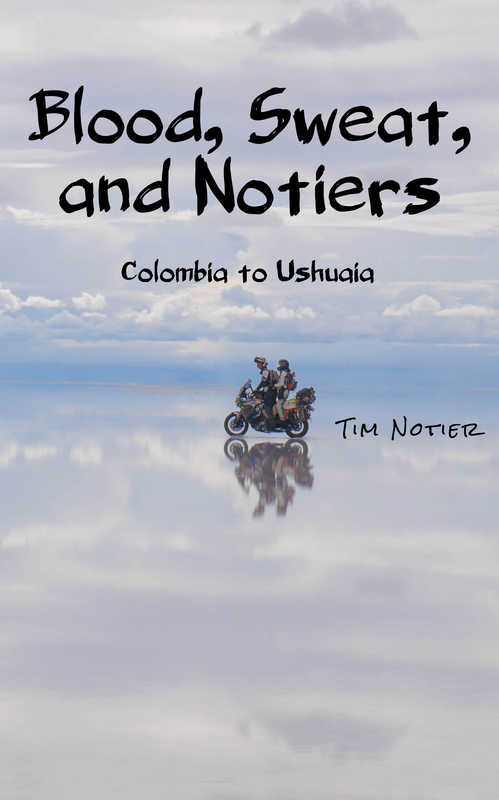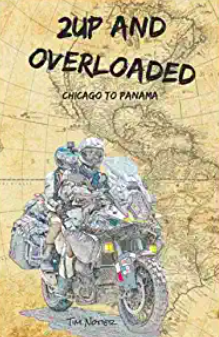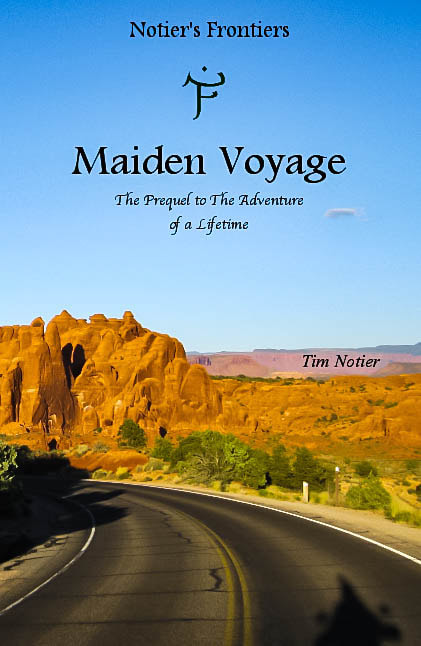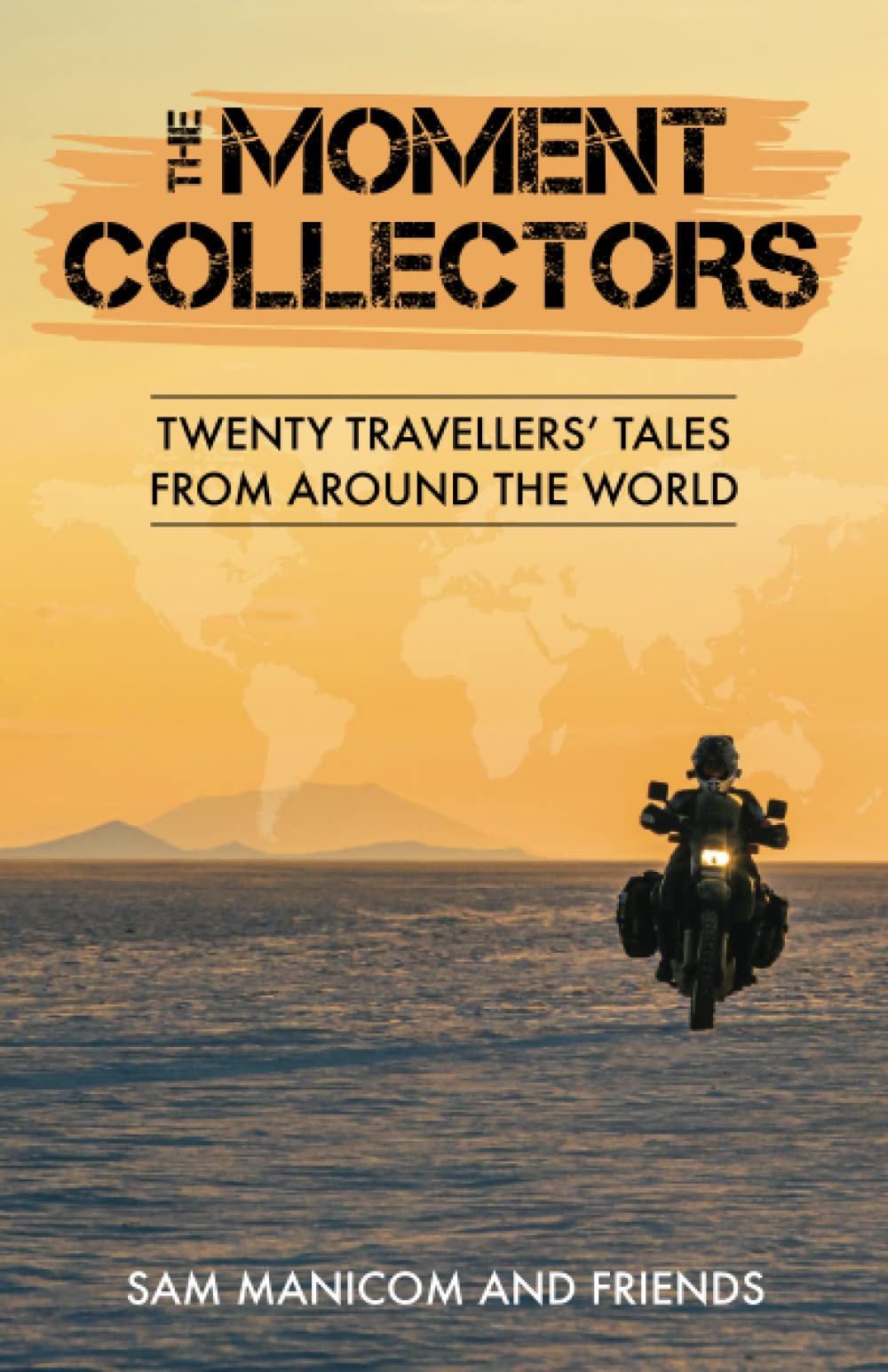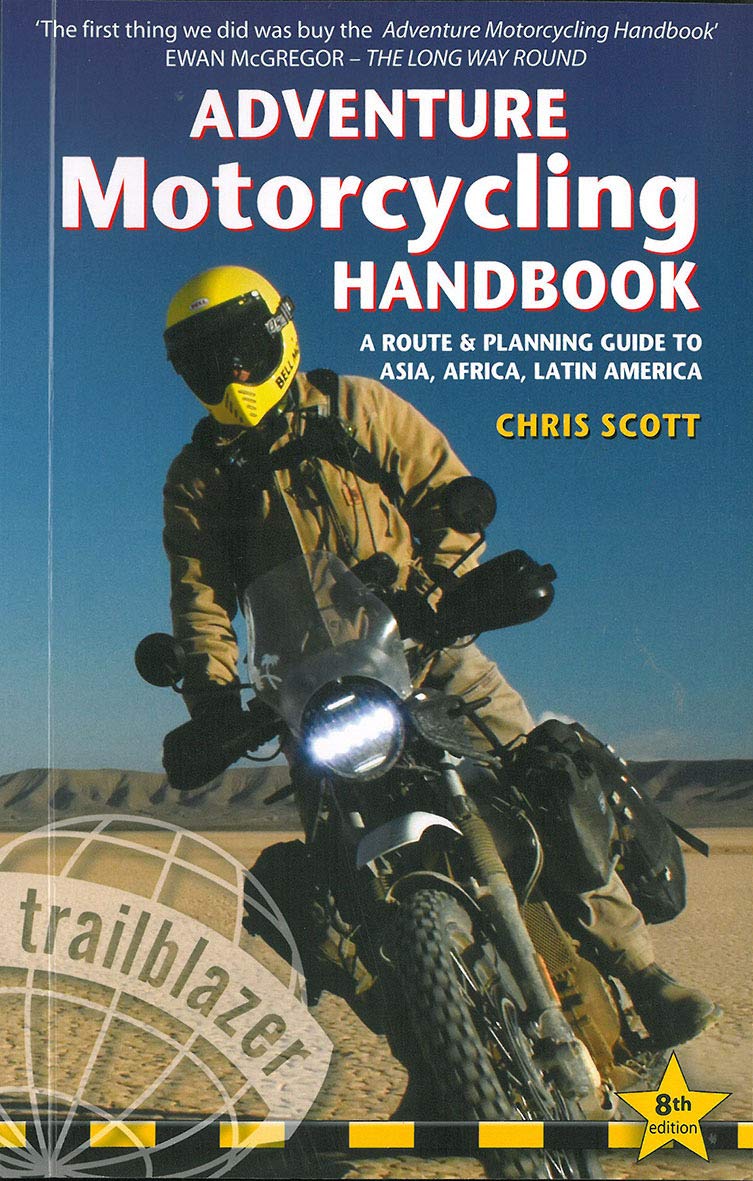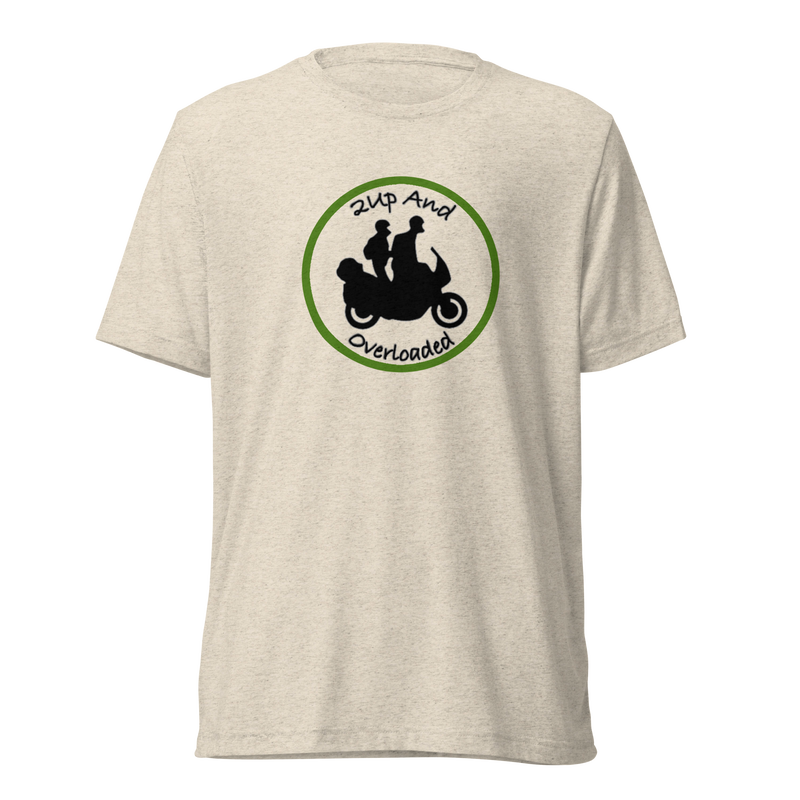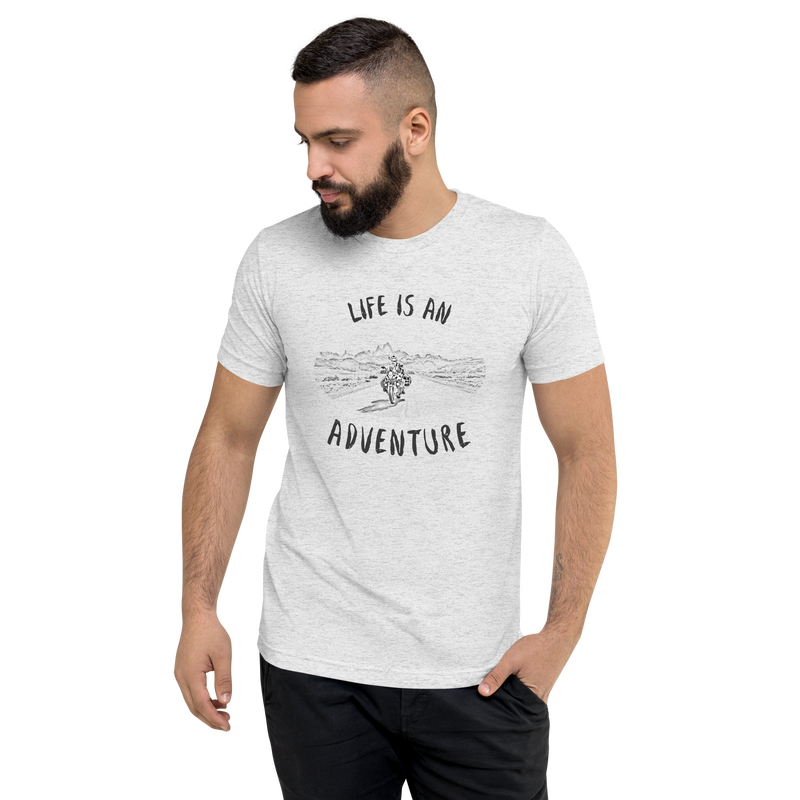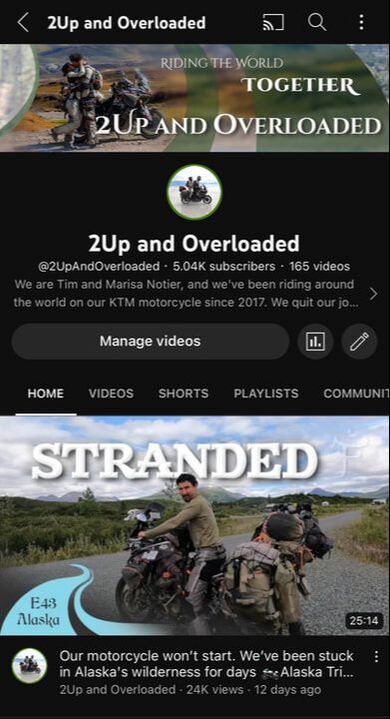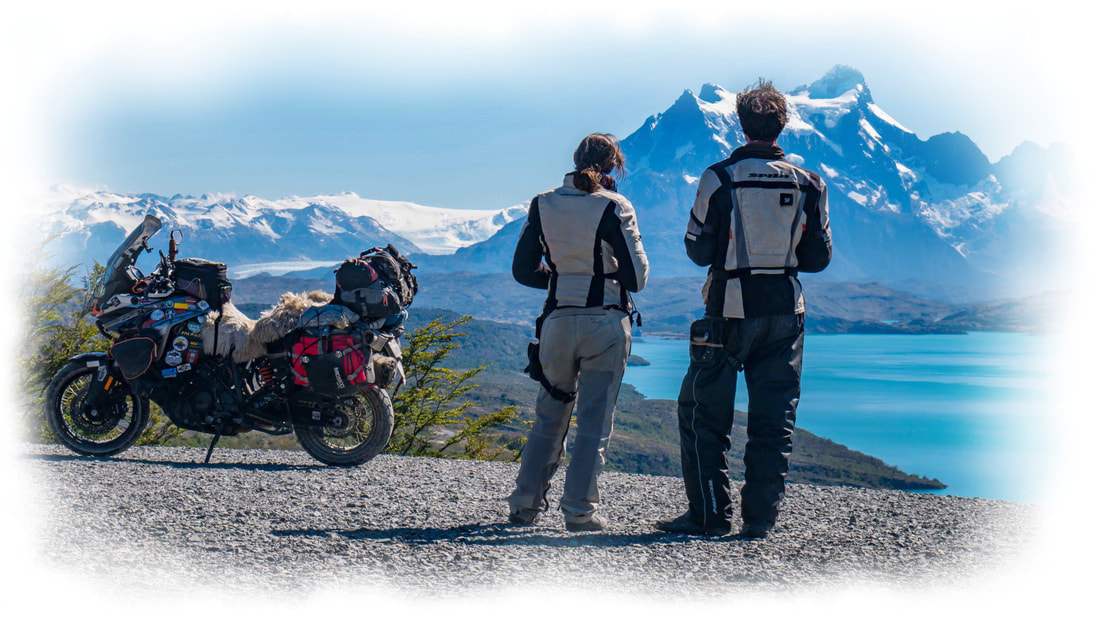By Marisa“You will never want to leave Malawi," is what people told us. “The lake is perfectly placid and warm, and swimming in it is divine." Hearing things like this got me excited to visit this small African nation bordering the most biodiverse lake in the world: Lake Malawi. But then we also heard the many warnings: “Watch out for the Bilharzia parasite," and “Beware of crocodiles." Moreover, it was going to be $75 per person just for the visa to enter Malawi, and because we happened to be visiting in the midst of the rainy season, the weather would be at its worst. In the end, we worried the high price to see this small country would not be worth it for us. But, you know how we are, once we get excited to see something, we have to go. So from Zambia we headed straight to Malawi, and found ourselves at another confusing and chaotic border crossing. We were still traveling with our motorcycle friend, Emiliano, and when we pulled up to where people said the Malawi Customs and Immigration building was, I simply didn't believe it. There was no sign, no Malawian flag, no indication that this tiny sweltering set of walls was going to be able to process our expensive visas. But sure enough, we'd come to the right place, and spent the next few hours standing in line between sweaty people, filling out paperwork, dishing out our hard-to-come-by US currency for the visa, along with paying for a road tax, carbon tax, and something called a consulate tax... and then after all that, as I proudly looked at the official full-page sticker for the Malawi visa in my passport, I noticed that they had labeled me as a MALE. I sighed. “Well, I'm not going to go stand in line again to change it now," I told Tim in my best deep, manly voice. From the border, the three of us rode straight to Lilongwe, Malawi's capital city, but we discovered this “city" to be small, and much of it looked rural, like the rest of Malawi. Dirt roads extended away from our “paved" one into grassy fields of cows grazing between clumps of brick thatched huts. People were selling bananas, pulling their goats around on a rope, riding bicycles laden in sacks of corn meal. A woman was carrying a live chicken in a plastic bag with only its head sticking out. A man was fixing people's broken flip flops, and yes, that seemed to be his full-time job. Every single day, in every single place we went to in Malawi, the electricity would cut out. This lack of consistent amenities made traveling through the country difficult. One time we tried to find food to cook, and we stopped by a roadside thatched hut called Mkaika Shopping Centre. But they only had loaves of processed white bread, sacks of rice and corn flour, a few tomatoes and tiny onions, and bars of laundry soap for washing clothes by hand. That's it. No meat, no eggs, no real vegetables. Just the very basics for survival. So yes, Malawi is poor, but this poverty is quickly drowned out by the country's friendly people, vibrant culture, and absolutely breathtaking landscapes. The colorful cloths that women wear as skirts, the kids waving at us from the side of the road, and most impressively, the huge blue lake surrounded by lush green mountains... Malawi may not have been gifted with great monetary wealth, but it is certainly rich in culture and natural beauty. From Lilongwe, we unfortunately had to part ways with Emiliano who wanted to head south while we went straight to the lake. And after doing a bit of research, we learned that although there is a horrible parasitic snail that lives in the lake and can infect you through your skin, if you take some pills a few weeks after swimming, you'll be fine. So we purchased the pills, waited for the rains to stop, and headed into Lake Malawi. The water was soothingly warm, and the lake was dotted in wooden dugout fishing boats. Then we got literally inundated with some pretty bad weather as we camped for two days beachside and in a constant deluge. Our tent was covered in splattered mud, our sleeping bag was damp, and our dry belongings had become threateningly low. The weather reports showed that it was going to rain every day for as far as the extended forecast would go. We knew we needed to get dry before we turned into moldy prunes. When it rains in Malawi, it storms in Biblical proportions. Last rainy season, 80,000 people in Malawi were displaced due to flooding, along with 60 fatalities. So Tim and I planned to leave the lake and head to the next biggest town, Mzuzu (best name ever), where we could stay indoors in a hotel, and get ourselves dry. At first, I thought Malawi was going to be all about the lake. But to my surprise, it's also a land of forested mountains. Greener than green could ever be, the mountains always surrounded us. Malawi is the beginning point of the Great Rift Valley that carves its way through eastern Africa and ends in the Dead Sea: a chasm in the earth of vivid colors. We took these lovely winding mountain roads that weaved inland from the lake, but the roads were narrow, the pavement unreliable, and the rains were bucketing over us. But worst of all, Malawi's drivers acted like they wanted to hit us head-on. Just as in Peru, for some reason drivers in Malawi like to stray into your lane and play chicken with you, especially if you're on a motorcycle. They believe that motorcycles are small and slow (neither of which is true for us) and should move out of the way of bigger vehicles. Trucks were barreling frighteningly close to us, and we were being run off the road into the mud and flooded-out gravel, which was equally dangerous. Tim laid on the horn, flashed his brights at all oncoming traffic, but his efforts were being drowned out by the pounding rain. And then there was this one semi truck that simply did not care about our lives. We skirted over as far as we could go, but as he came at us full-speed, I thought, “Ok, this is it. We're going to die." Somehow, and I still don't know how, the truck did not hit us. It must have come less than an inch away from our pannier. We could feel the wobble of the wind it created as the semi swished passed us, and with our stomachs in our throats, we pulled over to take a breather. “That was the closest we've ever come to death on the road," Tim said to me as we sat in the rain. Very slowly, and very carefully, we pushed on to Mzuzu, and somehow made it there alive. Mzuzu had a supermarket, which was very exciting for us. Plus, our hotel had a hot shower and internet when there was electricity. We strung up a clothes line in our bathroom to get our stuff dry, but our enjoyment was short lived. On the second day there, we both got sick. It was food poisoning, a need-to-go-to-the-bathroom type of sick. Good thing we had our own en suite toilet and there was a pharmacy across the street. We ended up staying a week in Mzuzu to recover. And finally, on the eighth day the sun came out, we felt better, and we decided to leave. But as we started packing up, we opened up one of our panniers and the horrible stench of athlete's foot came wafting out from our sleeping pads. Mold. All our camping gear was covered in putrid, festering mold. We had no one to blame for this but our own stupid selves. So we took everything out, poured toilet-bowl bleach all over our sleeping pads, and started scrubbing. A few hours later, and due to the drying power of that one sunny day, the little green circles of mold stains had faded and didn't smell so bad anymore. So we once again packed up, kept our fingers crossed for no rain, and headed higher into the mountains to a place called the Mushroom Farm. Built on a vertical cliff overlooking Lake Malawi, the Mushroom Farm is a hotel/campground that is also hiking distance from Manchewe Waterfalls in Nyika National Park. We took the backroads to the farm through the park, which was beautiful, and then hiked to the falls, and it was definitely worth the trek (see the first picture of this post). But it was the road out that was the most spectacular of all: a rocky and rutted set of tight switchbacks through the jungle with views of the blue Lake Malawi interspersed between the trees. But our problems were not over. As we descended, suddenly the engine of the bike cut. The power was still on, and the dash was flashing all sorts of warnings at us. But with relief, Tim was able to get the bike started. And then it died again. And again. Thank goodness we were headed steeply downhill and didn't actually need the engine, but by the twelfth time that the bike randomly shut off, we kept thinking, what is wrong with it now!? We were able to limp our way to a lakeside campsite, where Tim headed online to post an SOS to all KTM 1190 savvy folks out there who might be able to diagnose the problem. The next proper KTM dealership was in Kenya, so getting our bike to a professional was out of the question. And all the local mechanics of Malawi only knew about the little bikes they had, not a massive and electronically-complicated adventure bike like our 1190. But thanks to the online community, people came up with some great suggestions. One theory was that our bike may have had an electrical “aneurysm", and in computer terms, needed a reboot. So after taking out the battery, checking all the connections, and putting things back together, we decided to take a test ride up the mountain again and back down. It was the same road, and we were replicating the same circumstances, and luckily, nothing went wrong this time. So we're hoping that the aneurysm theory was right, and so far, our beloved bike has been back in business. Before we left Malawi, we wanted to take one more dip in the lake as a final goodbye. But then we were told by the camp hosts that there was a crocodile recently seen at the lake's edge. “Last year, a village boy was eaten by one," he said. In other words, “Go swimming and have fun," we were told. “But just be very, very careful." Ok, I was beginning to realize that swimming in Lake Malawi was not going to be as divine as I had once hoped. Or maybe we were just unlucky with our timing and selected swimming locations. But we ended up wading our feet in, and taking a final stroll along the beach instead of a swim. Guessing by our luck so far, we would have definitely been eaten by that crocodile if we went in. Malawi has been full of adventures for us, and it's shown us its beautiful side and its ugly side. Warm waters, tropical mountains, parasites, crocodiles, chickens in bags... Malawi definitely has that perfect blend of incredible landscapes mixed with a unique and fascinating culture, all topped with just a dash of heart-pounding adventure. Now, we're moving on to our next country: Tanzania. And I couldn't be more excited. This week we'd like to thank Brendon Lever for his generosity, and all those who have left reviews of Tim's book on Amazon. They are heartfelt and very appreciated, and have been great motivation for him to finish up his next book: Two-Up and Overloaded! We also want to give a shout out to our dear friend Jacques in South Africa who showed us our first African off-road mountain pass, our first braai, and despite facing some obstacles along the road, he's still keeping it strong. Stay tuned and we'll keep you posted on the next chapter of our journey. |
Follow UsRide with us from Chicago to Panama!
2Up and Overloaded Get inspired by the tale that started it all:
Maiden Voyage 20 author's tales of exploring the world!
The Moment Collectors Help us get 40 miles further down the road with a gallon of gas!
Become a Patron for early access to our YouTube Videos!
Subscribe to our YouTube Channel!
Subscribe to our Blog by Email
|
2Up and Overloaded
Join our clan of like-minded adventurers...
Proudly powered by Weebly
Designed by Marisa Notier

